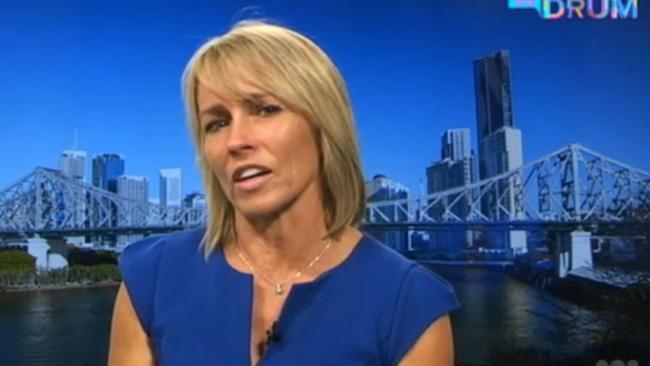Why the word ‘privilege’ is a trigger for so many
MY TV appearance this week showed the word ‘privilege’ triggers howls of outrage, writes Jane Fynes-Clinton. But what’s wrong with admitting some of us get a head start thanks to circumstances we lucked into?
Rendezview
Don't miss out on the headlines from Rendezview. Followed categories will be added to My News.
IT is apparently extremely difficult to admit when we are privileged, as if admitting it makes us lesser.
If you hit life’s jackpot, why deny it? Is it that you do not want to share your pot of gold? And so it is with those of the male, white and authoritarian variety, defending the creaking barricades and spitting in the direction of those who don’t fit the mould but want to be allowed entry or at least be given a shot at peeking in the door.
So many of the privileged white males criticise and point, malign and write off as hysterical any suggestion that they need to make room for others, or that the bastions are no longer theirs alone.
For some reason, diversity is deemed a threat.
I was on the panel of ABC TV’s The Drum this week when the issue of the torturous maligning of the white, middle-aged man was raised.
Its inclusion in the conversation was sparked by a series of events that had caused a vomiting of vitriol: acclaimed author and historian Niall Ferguson organised a historians’ conference at Stanford last month that was addressed only by men and only white ones.
He said he had invited five women but they had all declined. There was no mention of whether people of colour were considered for the line-up.
In the face of searing criticism, he wrote an extensive piece defending his actions and himself, saying this was now an era where people were forced to feel shame for being white, and that there was extra disgrace in being a caucasian male.
On air, I said that white men, who are proportionately over-represented in our society’s authorities, had to get used to the idea they are not entitled anymore and must make room for others of the other gender and different hues.
Social media went nuts. I was said to be prejudiced, deluded, ultra-feminist and to use my female genitalia as a weapon. Good grief.
WTF? Go make me a Sandwich!!
— Dean Clarke (@Mostleavablecit) April 3, 2018
There was no inequality any more, the rant went. It had all been fixed. Women just took any opportunity to bash men, and the whiter the better.
Why is suggesting a fairer, more balanced representation within society’s sentinels and corporate controllers prejudiced?
No one is suggesting quota systems or compulsory inclusions, but surely we have to shift towards more inclusive playing fields and opportunities in the layers that lead to leadership positions too.
Equality might exist on paper in many realms, but equity rarely does. That point seems to be regularly missed.
White, middle-aged men squeal loud and often that they are now subject to reverse discrimination. While there are examples, I disagree overall.
They still experience the pedestal effect, receiving undeserved praise, reward or attention for performing work traditionally done by women. Rarely is the reverse true.
Those in powerful positions are still overwhelmingly white, middle-aged and male.
They are the presumed heirs in many corporations, the employees automatically considered for promotion.
The truth is that everything is stronger and more powerful — parliaments, boards, debates, even online debates — when a range of views from people with a range of characteristics are included.

The important factor that seems to be lost in the debate and in the manning of the barricades is that so many of the attributes being eyeballed are nothing to do with any choice or achievement.
A person happens to be born in a skin that is white, or pink, or brown.
They happen to have parents to love them, or neglect them, or feed them or don’t.
They happen to be in a household where education is valued, or it isn’t; where parents are employed or on welfare; where their brain is stimulated or stunted.
Certain characteristics intrinsically offer up opportunity because they are historically advantageous. Being white and male and aged in the goldilocks years — not too young, not too old, but just right — are the most privileged of all.
But white men did nothing to be those things, any more than I chose to be white, female and — yes — privileged.
Why, then, is there a prevalence to defend? Is it that they like to believe that they’re self-made people who’ve earned a societal position by their own endeavours?
What a load of hooey.
Yes, some white, middle aged men are being and will be shuffled over to make room for others. They must be and that will rankle.
Diversity and sharing power benefits everyone.
And while it is not your choice or your fault that you are white, middle-aged and male, not acknowledging or naming the privilege that gives you is.
Dr Jane Fynes-Clinton is a journalist and journalism lecturer at the University of the Sunshine Coast.


